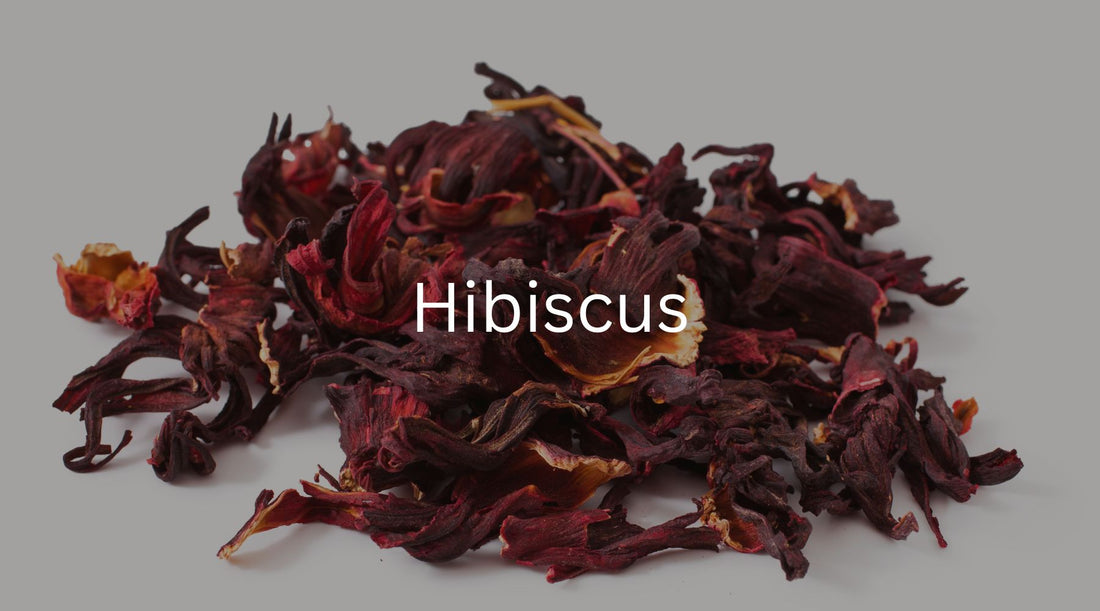If you're someone who enjoys a warm cup of tea and is looking for a natural way to support your mental health and wellness, you may want to consider incorporating hibiscus tea into your routine. Hibiscus is a flowering plant that is commonly used in teas and other herbal remedies. It has a tart, cranberry-like flavor and is often enjoyed both hot and cold.

Why You Should Consider Hibiscus Tea for Mental Health and Wellness
Hibiscus tea is packed with antioxidants, which can help protect your body from the damage caused by free radicals. Free radicals are unstable molecules that can damage cells, and may play a role in the development of chronic diseases like cancer, heart disease, and Alzheimer's disease.
But hibiscus tea is particularly noteworthy for its potential benefits for mental health and wellness. Here are just a few ways in which hibiscus tea may be helpful:
Reducing Anxiety
Anxiety is a common mental health issue that can affect people of all ages. Hibiscus tea may help reduce anxiety by acting as a natural sedative. One study published in the Journal of Ethnopharmacology found that hibiscus extract had an anxiolytic (anxiety-reducing) effect in mice.
Improving Mood
Hibiscus tea may also help improve mood. One study published in the Journal of Nutrition found that hibiscus extract helped improve mood and reduced symptoms of depression in a group of postmenopausal women.
Reducing Inflammation
Chronic inflammation is thought to play a role in the development of many diseases, including mental health conditions like depression and anxiety. Hibiscus tea has anti-inflammatory properties and may help reduce inflammation throughout the body.
Supporting Sleep
Getting enough sleep is essential for good mental health and wellbeing. Hibiscus tea may help support healthy sleep by acting as a natural sedative and helping to reduce anxiety and stress.

How to Incorporate Hibiscus Tea into Your Mental Wellness Routine
If you're interested in incorporating hibiscus tea into your mental wellness routine, here are a few tips to get you started:
1. Choose High-Quality Hibiscus: When selecting hibiscus tea, look for a high-quality product that is made from whole hibiscus flowers. This will ensure that you're getting the full range of benefits from the plant.
2. Experiment with Different Preparations: Hibiscus tea can be enjoyed both hot and cold. Try brewing it as a hot tea or brew a pitcher of iced hibiscus tea for a refreshing summer drink.
3. Consider Blending with Other Herbs: Hibiscus tea can be blended with other herbs to create a custom tea blend tailored to your specific needs. Consider blending hibiscus with lavender, chamomile, or lemon balm for added relaxation and stress relief.
4. Be Mindful of Caffeine Content: While hibiscus tea is naturally caffeine-free, some commercial blends may contain caffeine. If you're sensitive to caffeine, be sure to check the label before purchasing.
Incorporating hibiscus tea into your mental wellness routine is a simple and delicious way to support your overall wellbeing. Whether you're looking to reduce anxiety, improve mood, or support healthy sleep, hibiscus tea may be just what you need. So why not start sipping today?
Options
When it comes to picking the right tea for the right moment, it is really up to your preferences. However, we recommend if you want a relaxing moment to unwind, stay clear of caffeinated teas.
Our blend, Happy Hibiscus, is filled with hibiscus and rooibos for a perfect, uplifting blend.
Precaution
When drinking herbal tea for anxiety or stress, it's important to remember that it's not a substitute for professional help. If you're struggling with mental health issues, it's important to seek help from a qualified healthcare provider. Herbal tea can be a supportive addition to your treatment plan, but it's not a replacement for professional care.
Citations

